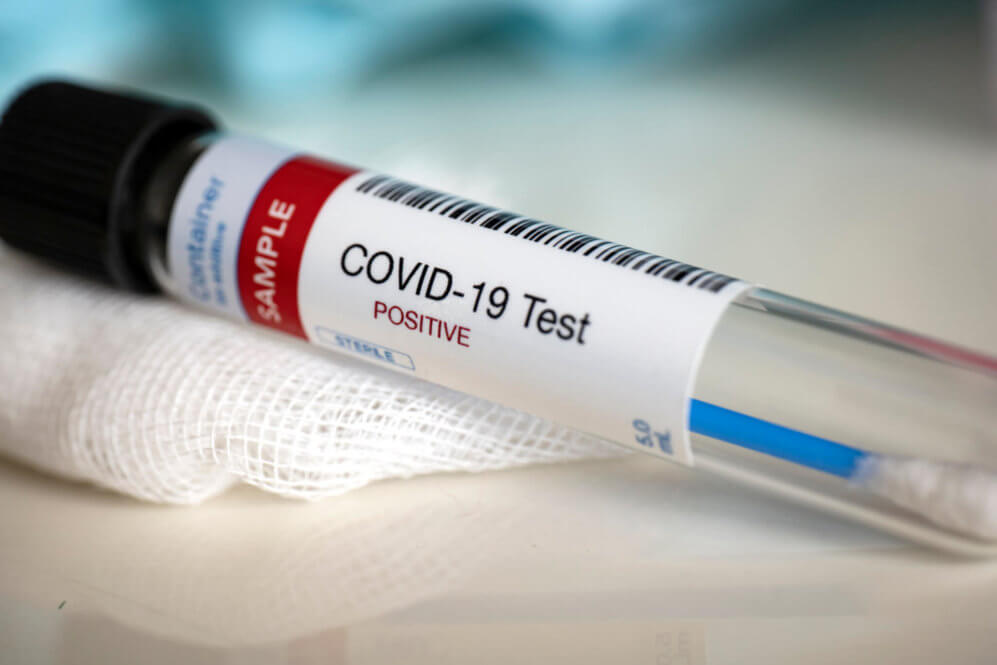
Cases spiked between 7% to 8% in the Appalachian Highlands region.
WISE – The numbers don’t lie. The Appalachian Highlands has a COVID-19 problem. Over the last week, the region, including Southwest Virginia and parts of Kentucky, North Carolina and Tennessee saw a 7% to 8% increase in cases.
Dr. Clay Runnels, chief physician executive and practicing emergency room physician at Ballad Health, detailed the problem on Wednesday.
“We continue to see data that is concerning as the surge continues to progress,” Runnels said.
Hospitalizations are also up in the area. Last week, 107 COVID patients resided in the region’s 21 hospitals. This week, those same facilities held 137 COVID patients.
The intensive care unit numbers also increased from 27 patients last week to 29 this week. Ventilator use also rose from last week’s 14 to 20 this week.
The 11.7% COVID positivity rate in the Ballad Health service region also remained higher than averages in Virginia and Tennessee at 6.7% and 7% respectively.
Throughout the pandemic, the area suffered 1,999 COVID deaths. A total of 931 of those deaths occurred in Ballad Health facilities.
“We still have a low death rate currently, but as we’ve talked about throughout the pandemic, we expect to see that rise because it is a lagging indicator,” Runnels said. “With the number of hospitalizations we’re seeing, we do expect that to rise in the coming weeks.”
Combating the virus, Ballad Health announced that as of Wednesday, all facilities in Southwest Virginia and across the Highlands, will offer same-day COVID test results.
COVID Variants Show Up in Southwest Virginia
Runnels warned about the potential for COVID variants in the region. Several factors contributed to the concern, displayed in the healthcare provider’s predictive modeling.
“The numbers we’re seeing – with a drop in the age of hospitalizations, a drop in the age of death and the increased surge – have suggested to us for some weeks that there may be variant transmission in the region,” Runnels said.
Ballad Health recently partnered with Bio Bot Analytics to perform wastewater testing to determine the viral spread, as well as the presence of the UK variant, B117.
Preliminary results from wastewater samples revealed significant spread of COVID, with the presence of B117.
“We currently feel that the numbers that we’re seeing right now suggest that the B117 is driving the surge in the region,” Runnels said. “This is not too surprising because that strain is becoming the dominant strain in many areas of the United States.”
Jamie Swift, Ballad Health’s Chief Infection Prevention Officer, stressed the importance of remaining vigilant against the variants.
“The next few weeks are extremely critical. We know the variant’s here. We know it’s driving that transmission,” Swift said. “And so our actions for the next several weeks really could have a very large impact on the region.”
In an effort to keep the variant spread to a minimum, Runnels urged getting the vaccine, wearing masks and social distancing.
“Those, right now, are critical because it’s really going to lead to saving lives for our community if we can do those things,” Runnels said.
Runnels noted that the COVID vaccines do work against the B117 variant.
Personal Experience in Southwest Virginia
Runnels noted that each of the data points he shared represented a real person in the Appalachian region.
“They each have a journey and story to tell,” Runnels said.
One of those people was Amber Stevens, a COVID-19 survivor. She took the podium to talk about her struggles with the virus.
While the initial bout of COVID-19 did not have a huge impact on Stevens’ life, some symptoms lingered longer than usual. She experienced bouts of shortness of breath and constantly smelled nonexistent cigarette smoke for a month.
Stevens first reached out to her primary care doctor who ran tests and determined that everything was normal. Unfortunately, the symptoms did not catch wind of the report.
“When I left, I was discouraged because the symptoms were causing tasks throughout my week to be very difficult,” Stevens said.
While completing everyday tasks, like going to work or sitting through a church service, Stevens feared she might get into a coughing fit. She also needed to clear her throat more than usual and took deep breaths in order to get enough oxygen.
Stevens heard about Ballad Health’s Center for Post-COVID Care, but initially dismissed the idea of herself as a patient.
“My symptoms were more annoyances, I felt, than true medical concerns,” Stevens said.
Eventually, Stevens decided to reach out to the center, where doctors first listened, and then offered help and support.
“They sent me home that day with what I would consider a very personalized treatment regiment,” Stevens said.
Approximately four weeks later, the majority of Stevens’ symptoms subsided.
“The ones that are still hanging around are very, very mild,” Stevens said. “So even though I was very leery about making that appointment initially for that post-COVID follow-up, I’m so glad that I did.”
Amie Knowles reports for Dogwood. You can reach her at [email protected]
JOIN THE CONVERSATION: Sign Up For Dogwood’s Newsletter
Politics

Biden administration bans noncompete clauses for workers
The Federal Trade Commission (FTC) voted on Tuesday to ban noncompete agreements—those pesky clauses that employers often force their workers to...

Democratic shakeup in Virginia primaries for governor, lieutenant governor
Richmond Mayor Levar Stoney quit his bid for governor and jumped into the race to be the Democratic nominee for lieutenant governor. The race for...
Local News

The zodiac signs of 12 iconic women offer insight into their historic accomplishments
Zodiac signs can tell you a lot about someone’s personality. Whether they’re an earth, water, air, or fire sign, these 12 categories (which are...

Virginia verses: Celebrating 5 poetic icons for National Poetry Month
There’s no shortage of great writers when it comes to our commonwealth. From the haunting verses of Edgar Allan Poe, who found solace in Richmond's...





